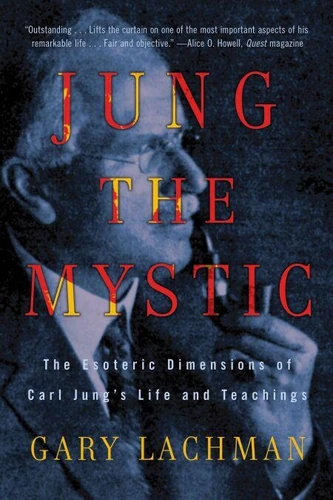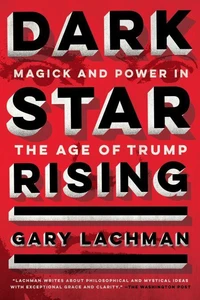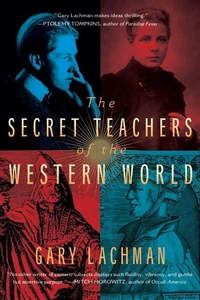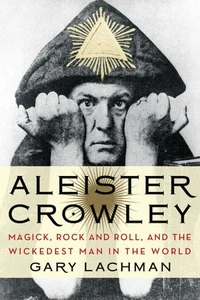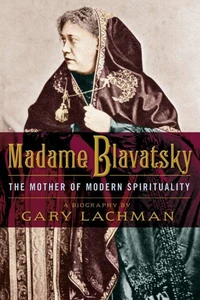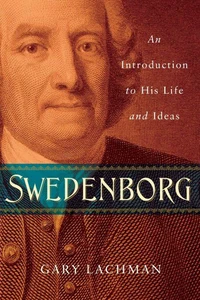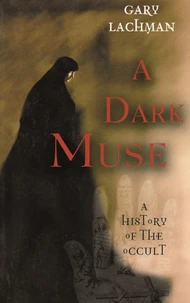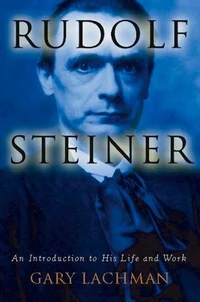Jung the Mystic. The Esoteric Dimensions of Carl Jung's Life and Teachings
Par :Formats :
Disponible dans votre compte client Decitre ou Furet du Nord dès validation de votre commande. Le format ePub protégé est :
- Compatible avec une lecture sur My Vivlio (smartphone, tablette, ordinateur)
- Compatible avec une lecture sur liseuses Vivlio
- Pour les liseuses autres que Vivlio, vous devez utiliser le logiciel Adobe Digital Edition. Non compatible avec la lecture sur les liseuses Kindle, Remarkable et Sony
- Non compatible avec un achat hors France métropolitaine
 , qui est-ce ?
, qui est-ce ?Notre partenaire de plateforme de lecture numérique où vous retrouverez l'ensemble de vos ebooks gratuitement
Pour en savoir plus sur nos ebooks, consultez notre aide en ligne ici
- Nombre de pages272
- FormatePub
- ISBN978-1-101-18829-3
- EAN9781101188293
- Date de parution24/06/2010
- Protection num.Adobe DRM
- Taille324 Ko
- Infos supplémentairesepub
- ÉditeurTarcher
Résumé
This bold, compact new biography of Carl Jung fills a gap in our understanding of the pioneering psychiatrist by focusing on the occult and mystical dimension of Jung's life and work, a critical but frequently misunderstood facet of his career. Although he is often called the "founding father of the New Age, " Carl Jung, the legendary Swiss psychiatrist best known for his groundbreaking concepts like the collective unconscious, archetype theory, and synchronicity, often took pains to avoid any explicit association with mysticism or the occult.
Yet Jung lived a life rich in paranormal experiences-arguing for the existence of poltergeists in a debate with Sigmund Freud, participating in séances, incorporating astrology into his therapeutic work, reporting a near death experience, and collaborating with the pioneering ESP researcher J. B. Rhine. It is these critical experiences-often fleetingly touched on in other biographies or critical studies, and just as frequently used to make a case against Jung and his philosophies-that form the core of this exciting new biography, Jung the Mystic.
While Jung's ghostwritten memoirs, Memories, Dreams, Reflections, touch on the role his mystical and occult experiences played in his life, Gary Lachman's Jung the Mystic completes the circle: Lachman assesses Jung's life and work from the viewpoint of Western esoteric tradition and helpfully places Jung in the context of other major esoteric thinkers, such as Rudolf Steiner, G. I. Gurdjieff, and Emanuel Swedenborg.
In that respect, this new biography appeals directly to the sensibility of spiritual readers who rightly see Jung as a pioneer of today's contemporary metaphysical culture.
Yet Jung lived a life rich in paranormal experiences-arguing for the existence of poltergeists in a debate with Sigmund Freud, participating in séances, incorporating astrology into his therapeutic work, reporting a near death experience, and collaborating with the pioneering ESP researcher J. B. Rhine. It is these critical experiences-often fleetingly touched on in other biographies or critical studies, and just as frequently used to make a case against Jung and his philosophies-that form the core of this exciting new biography, Jung the Mystic.
While Jung's ghostwritten memoirs, Memories, Dreams, Reflections, touch on the role his mystical and occult experiences played in his life, Gary Lachman's Jung the Mystic completes the circle: Lachman assesses Jung's life and work from the viewpoint of Western esoteric tradition and helpfully places Jung in the context of other major esoteric thinkers, such as Rudolf Steiner, G. I. Gurdjieff, and Emanuel Swedenborg.
In that respect, this new biography appeals directly to the sensibility of spiritual readers who rightly see Jung as a pioneer of today's contemporary metaphysical culture.
This bold, compact new biography of Carl Jung fills a gap in our understanding of the pioneering psychiatrist by focusing on the occult and mystical dimension of Jung's life and work, a critical but frequently misunderstood facet of his career. Although he is often called the "founding father of the New Age, " Carl Jung, the legendary Swiss psychiatrist best known for his groundbreaking concepts like the collective unconscious, archetype theory, and synchronicity, often took pains to avoid any explicit association with mysticism or the occult.
Yet Jung lived a life rich in paranormal experiences-arguing for the existence of poltergeists in a debate with Sigmund Freud, participating in séances, incorporating astrology into his therapeutic work, reporting a near death experience, and collaborating with the pioneering ESP researcher J. B. Rhine. It is these critical experiences-often fleetingly touched on in other biographies or critical studies, and just as frequently used to make a case against Jung and his philosophies-that form the core of this exciting new biography, Jung the Mystic.
While Jung's ghostwritten memoirs, Memories, Dreams, Reflections, touch on the role his mystical and occult experiences played in his life, Gary Lachman's Jung the Mystic completes the circle: Lachman assesses Jung's life and work from the viewpoint of Western esoteric tradition and helpfully places Jung in the context of other major esoteric thinkers, such as Rudolf Steiner, G. I. Gurdjieff, and Emanuel Swedenborg.
In that respect, this new biography appeals directly to the sensibility of spiritual readers who rightly see Jung as a pioneer of today's contemporary metaphysical culture.
Yet Jung lived a life rich in paranormal experiences-arguing for the existence of poltergeists in a debate with Sigmund Freud, participating in séances, incorporating astrology into his therapeutic work, reporting a near death experience, and collaborating with the pioneering ESP researcher J. B. Rhine. It is these critical experiences-often fleetingly touched on in other biographies or critical studies, and just as frequently used to make a case against Jung and his philosophies-that form the core of this exciting new biography, Jung the Mystic.
While Jung's ghostwritten memoirs, Memories, Dreams, Reflections, touch on the role his mystical and occult experiences played in his life, Gary Lachman's Jung the Mystic completes the circle: Lachman assesses Jung's life and work from the viewpoint of Western esoteric tradition and helpfully places Jung in the context of other major esoteric thinkers, such as Rudolf Steiner, G. I. Gurdjieff, and Emanuel Swedenborg.
In that respect, this new biography appeals directly to the sensibility of spiritual readers who rightly see Jung as a pioneer of today's contemporary metaphysical culture.

